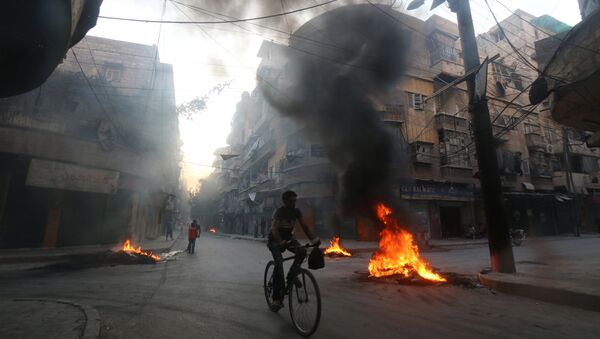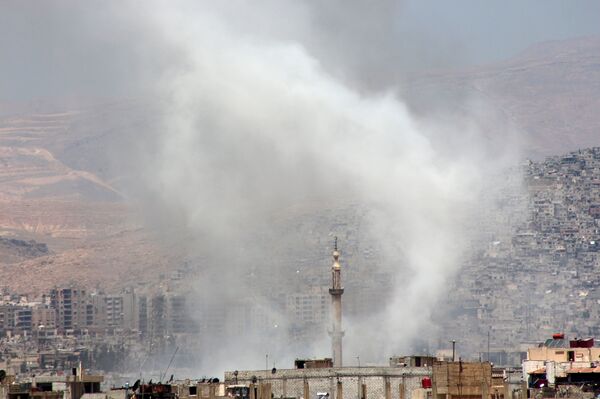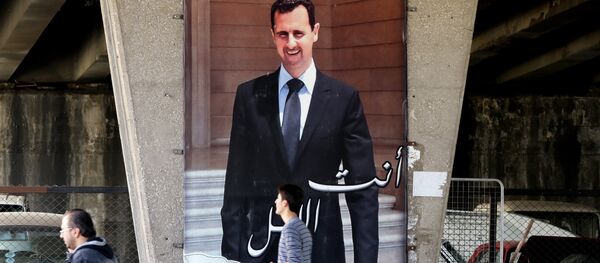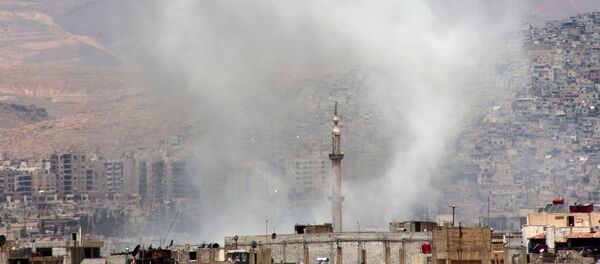Ishchenko, the head of the Center for Systems Analysis and Forecasting, pointed out that the UN and other organizations turned a blind eye to documents and evidence provided by Syrian authorities on gas attacks that were carried out by radical groups since a foreign-sponsored uprising rocked the Arab country in 2011.
Bashar Jaafari, Syria's envoy to the UN, told Sputnik as much in an exclusive interview. The diplomat also said that the worst gas attack that took place in Syria was orchestrated to prevent a UN inspector from going to Aleppo and investigating another chemical assault blamed on rebels. He was referring to a chlorine attack in Ghouta, a Damascus suburb, in August 2013.
Shemshadi Hassan, the Iranian Radio and Television correspondent in Syria and Iraq, also told Sputnik that following the Ghouta attack several Western media outlets spoke to the militants in Damascus suburbs who confirmed that they were behind it.
Experts agree that the outcome of the ongoing battle for Syria's second largest city will most likely determine the future of the country.
Aleppo is currently controlled by the Syrian Arab Army and radical militias, including al-Nusra Fronts and Ahrar al-Sham. The UN, Russia and the United States consider the former to be a terrorist organization, but Washington undermined Moscow's efforts to add the latter to this list.
"The defeated party in Aleppo will lose in the Syrian conflict. A defeat in Syria will lead to the US losing its status in the Middle East," the analyst observed. "It will also put an end to Washington's attempts to maintain hegemony. This is why the US is ready to raise the risk bar to the maximum."
The analyst added that while Barack Obama is in office "there is hope" that he will not yield to the pressure from hardliners in the US who have long championed America's greater military involvement in the devastated Arab country.
"This is why Russia needs to resolve the 'chemical problem' that the US created in Syria as soon as possible, before Obama's term runs out," he added.





